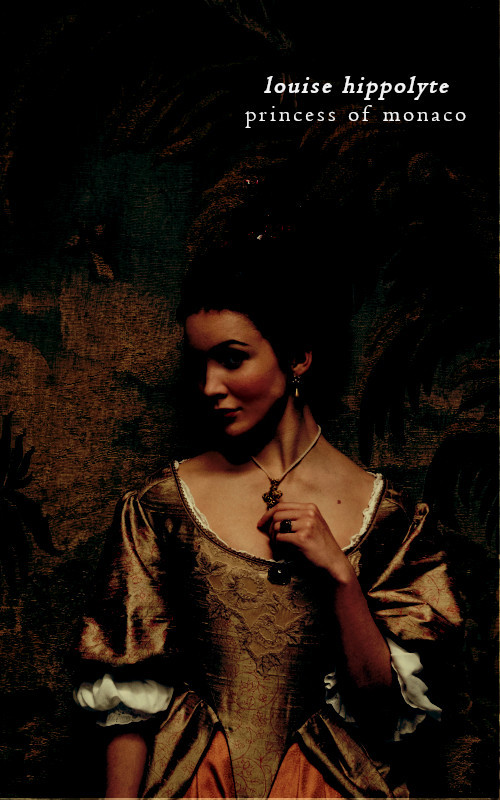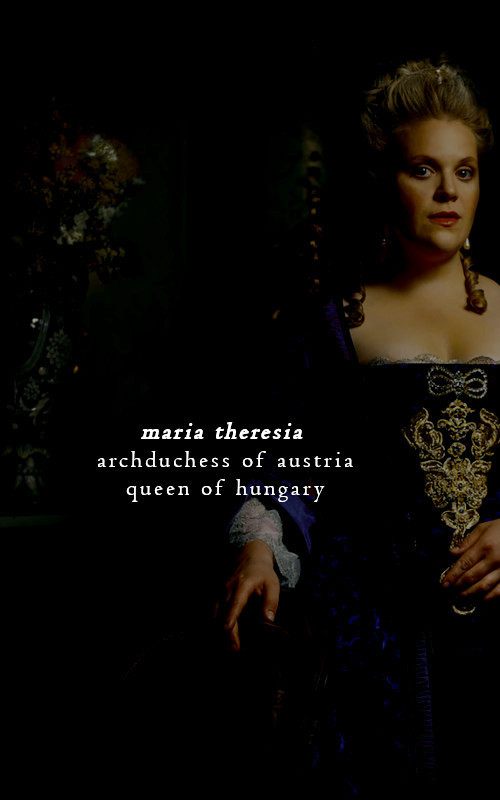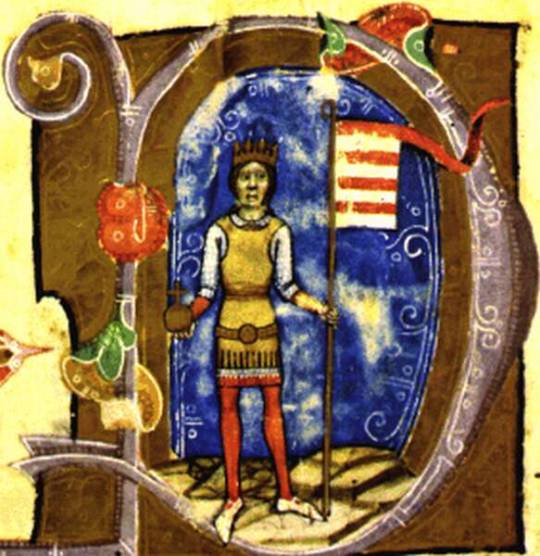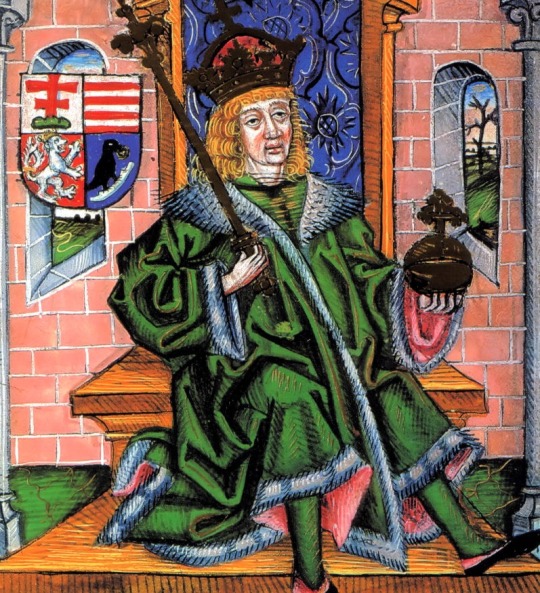#king of galicia
Explore tagged Tumblr posts
Text




carlos i hope you realize from this that you really need to bring back the nostril piercing because it's made for you!!!!
from here
#also what is this WHAT WE COULD'VE HAD IF HE STAYED IN ART SCHOOL#WHAT WE COULD'VE HAD IF HE WASN'T CLOSET— [GUNSHOT]#im joe king.......#😜#HE LOOKS SO GOOD IM#GOING CRAZY#CARLOS I HOPE THIS EXPERIMENT SHIFTED SOMETHING IN YOU#im literally crying#my wildest dreams#this is so cunty#bi carlos is Real and it CAN hurt you#he deserves to live his truth!!!!#carlitos#carlos sainz jr#estrella galicia#formula 1#f1
52 notes
·
View notes
Text
wdym he crashed again
#HOW#I OPEN IT AND BOOM HES DOWN#ATP I SHOULD JUST NEVER WATCH QUALI#motogp#marc marquez#its for the hunt its for the hunt its for the hunt its for the hunt its for the hunt#dude king of flopping he wants his most crashes trophy. saw he was being threatened by pecco and said nah nah nah hold my beer#estrella galicia i should say. hes laughing rn i can feel it. goddammit man#its the tires. he is uncomfortable on the bike. gresini fix the bike before i get you#directing my unjust annoyance and anger at various things cus wth. i have predictions tho if im right ill give myself a dollar
5 notes
·
View notes
Text


La ira que hay en mi
[English below]
Nunca me habían explicado por qué al ver a Carrie en su momento álgido, totalmente enajenada por la ira en una vorágine de violencia, yo sentía que presenciaba la pura belleza, la redención, un sueño de destrucción hecho realidad.
Carrie y esta escena son algo icónico. Interpretada por Sissy Spacek en la película homónima de 1976, dirigida por Brian De Palma (y basada en la primera novela de Stephen King), la protagonista es una adolescente que sufre acoso en la escuela y abuso por parte de su madre.
En su impactante escena final utiliza sus poderes telequinéticos para causar una masacre en su baile de graduación. Este momento representa la liberación de la rabia contenida y la venganza contra los opresores.
Una obra de arte perturbadora y violenta, que representa la adolescencia como un período difícil y traumático, la feminidad como una construcción social opresiva y la religión como una fuerza ambivalente. Su realismo es impresionante.
Esta ilustración la empecé hace bastante tiempo, y encaja a la perfección y mi serie de retratos de personajes oscuros y películas de terror. Así que por fin he tenido una excusa para terminarlo.
The anger within me
I had never been explained why, when witnessing Carrie in her climactic moment, completely deranged by anger in a whirlwind of violence, I felt like I was witnessing pure beauty, redemption, a dream of destruction come true.
Carrie and this scene are iconic. Portrayed by Sissy Spacek in the eponymous 1976 film directed by Brian De Palma (and based on Stephen King's first novel), the protagonist is a teenager who suffers bullying at school and abuse from her mother.
In her shocking final scene, she uses her telekinetic powers to cause a massacre at her prom. This moment represents the release of pent-up rage and revenge against oppressors.
A disturbing and violent work of art that portrays adolescence as a difficult and traumatic period, femininity as an oppressive social construct, and religion as an ambivalent force. Its realism is impressive.
I started this illustration a long time ago, and it fits perfectly into my series of portraits of dark characters and horror films. So I finally had an excuse to finish it.
#carrie#sissy spacek#brian de palma#stephen king#illustration#digital portrait#procreate#feito en galicia#feminism#teen angst#horror movies
9 notes
·
View notes
Text

Ali ibn Simon "the Worthy" Ziyadid and the Malikate of Saraqustah before his passing...god I'll miss it
#I'm still playing but his eldest son is staring down an independence faction from that goddamn Jimena dynasty#and his second son received Galicia and two unrelated sheikdoms as an independent Malik#Crusader Kings
0 notes
Text
Today, on August 23th, Ukraine celebrates our National Flag Day :) To celebrate the occasion, let me share a few fun facts about our flag 🇺🇦:
The most common symbolic interpretation of the colors is that blue stands for the clear sky and golden-yellow stands for the fields of wheat. This symbolism is important for us as we are largely an agricultural society and have some of the most fertile soil on Earth, making us an important grain exporter since the times of ancient history. There also once was a religious interpretation of the colors, but it didn't stick.
However, the origin of the colors is much more trivial: they come from the heraldic coat of arms of Lviv city, which became the capital of Rus'/Kyivan Rus'/Ruthenia* after Kyiv fell to the Golden Horde (I am oversimplifying for the sake of brevity), thus dating this color combo back to at least 1256). The founder of Lviv, king Danylo of Galicia, is also known to be the first and only Ruthenian* king crowned by the Pope, which was the conventional claim to legitemacy back then. Somehow he managed to achieve that without converting to catolicism nor contributing to the crusades.
There is a neverending popular debate about the proper order of the colors in the flag: blue on top or yellow on top. One of the most popular arguments is the XX century pictures that showcase what seems like a 🇺🇦 flag with yellow on top; however, this misunderstanding largely comes frome the fact that the black-and-white cameras of that time made yellow colors appear darker than blue. Some people also argue that the flag should be flipped over because of feng shui.
During the soviet times, owning a 🇺🇦 flag was a criminal offence that could lead you to up to 2 years of prison time.
In the current russo-ukrainian war the 🇺🇦 remains a symbol of freedom and resistance to russian occupation. During the occupation of Kherson region, people would tie blue and yellow ribbons in public spaces to showcase that they do not yield to ru occupants. Although this act seems small in the grand scale of things, even such resistance was extremely dangerous if caught - owning any ukrainian symbols is a reason enough for russians to accuse you of being a spy and send you to torture basement. The start of the popular movement is attributed to Nisar Akhmad - a ukrainian activist of Afgani origin.
Even before the full-scale invasion, the flag was used as a symbol of resisting russian occupation - back in 2019 on the Constitution Day a 🇺🇦 flag was raised in the center of occupied Donetsk - an act that would, simply put, doom you with a death sentence in the russia-orchestrated terrorist quasi-respublics. The willingness of the people to risk their life for this act of resistance showcases how empty the russian propaganda about ''russian Donbas'' really is. Donetsk waits for ukrainian liberation to this day.
One of the most worldwide famous ukrainian pictures, Reply of the Zaporozhian Cossacks by Ilja Repin is full of ukrainian sybolism and "easter eggs"; including the ukrainian flag sneaked into the picture - you can see it in the top left quarter on one of the spears. This is historically accurate, as Zaporozhian Cossacks would often don the blue-and-yellow colors when going into battle. The picture itself is full of symbolism and political commentary, and, frankly said, deserves a full post of its own - but to put it short, Ilya Repin, who is often presented as a ''russian artist'' by russians, is actually a descendant of ukrainian cossacks, and has modeled all of the people on the picture on important Ukrainian political figers. And the picture itself was written in response to the Ems Decree - the law that banned ukrainian language from public use in the cultural sphere. If you haven't yet experienced the dramatic reading of the letter in question, narrated by one and only Peter Capaldi, please treat yourself and watch it today.
*Rus' (Русь) is the name of the medieval country in the Eastern Europe that was vaguely centered around the territory of modern Ukraine. If you are confused about the name and how is Rus' different from russia - this confusion is intentional. The chiefdom of muscowy, which was founded at least 400 years after the foundation of Kyivan Rus' and was the vassal of the Golden Horde for the most part, has appropriated the name (''Ρωσία'' is just a greek version of ''rus'') to falsify the inheritance of the high crown of Kyiv, which in actuality has gone to the western branch of the bloodline through Danylo of Galych to the Grand Duchy of Lithuania (once again, oversimplifying very long and complex history for the sake of brevity). muscovies haven't been using the term ''russia'' to describe themselves before the 15th century, and all the earlier mentions of this term chronicled by foreign sources (e.g., the Byzantine empire) refer to the Kyivan Rus'.
#ukraine#ukrainian history#ukrainian culture#flags#ukrainian flag#the most important fun fact about ukrainian history is that there is a lot of misinformation mystification and pseudo-history. so ahem.#i tried hard to veryfy the sources but if I let something slip please let me know#укртумбочка#український тамблер
353 notes
·
View notes
Text
Another letter from Duroc to Murat
This time from 1809.
This letter was taken from the publication of Murat’s correspondence by Paul Le Brethon, so I’m unsure wether it’s been translated before. If so, sorry for the doublette.
Putting the letter into context: Murat has been made King of Naples, obviously. Napoleon has just returned to France from Spain, where he had put Joseph back on the throne. Soult has been busy chasing Moore’s British troops back to La Coruna and is now on his way into Portugal. Ney is in Galicia, freeing nuns. Lannes and Junot are at the siege of Saragossa, Mortier and Victor are also in Spain while Bessières is back in Paris, I think. Marmont is in Dalmatia. Eugène is in Italy and already sends alarmed letters to Napoleon because the Austrians prepare for war, the Fifth Coalition War is about to begin (even if Duroc seems to not believe in it yet):
Paris, 15 February 1809 Sire, Your Majesty should not be in any doubt as to how grateful I am for the fond memories he is willing to preserve for me; he would do me a great disservice if he thought I had forgotten his kindnesses to me. Nobody forgets that here.
Your Majesty asks me for news of the Emperor. On his return from Spain, where he has always enjoyed the best of health, His Majesty came down with a fairly bad cold.This cold and some dissatisfaction that His Majesty had with the chatter in Paris during his absence had made him ill, so to speak, although his work and ordinary exercises had never suffered. His Majesty is perfectly well again and has enjoyed the pleasures of Carnival and hunting.
Our carnival was short but very cheerful. We first had at Monsieur Marescalchi's and yesterday at Monsieur l'Archichancelier's two masked balls. His Majesty went there and seemed to enjoy himself. They turned out very well. The Court has its circles and concerts as usual and the Princesses, balls as in other years. Although we are as good Catholics as in Italy, we will be extending our Carnival pleasures during Lent.
As in Paris one thing quickly follows another, there is already no more talk of what displeased the Emperor on his return and of the disgrace suffered by a great personage, especially as His Majesty is treating him better now. Your Majesty knows as well as I do what is going on. The Emperor was told that during his absence the Prince of Benevento had expressed his disapproval of the affairs in Spain, that there had been some cackling between him, the Minister of Police and Remusat; something was also said about the Minister of the Navy. All were rebuked and the Prince was disgraced by losing his position as Grand Chamberlain. There is now talk of a forthcoming appointment of senators and, as Your Majesty is well aware, this is causing quite a stir.
Business in Spain is going very well, even better than expected. The expedition to Portugal will be easy. Only the siege of Saragossa is being prolonged, but it is being conducted vigorously. They are madmen who have to be attacked house by house, and they are blown up by mines one after the other. We lost General Lacoste, the Emperor's aide-de-camp, who was in command of the engineers; he was hit in the head by a bullet.
Austria's armaments are causing a lot of talk about war being imminent; however, there is reason to believe that she will not start it and that she is arming out of fear. There is no bad rumour that is not being spread over there: according to them, we no longer have any troops left in Germany; the Emperor only left Spain because he was put off by the difficulties, and they deny all our successes.
Monsieur de Romansoff, who was here, is returning to Petersburg. It had been thought that as the correspondence started with England had always been continued, it could be resumed in these circumstances, especially since the disasters suffered by their army in Spain. With profound respect, Sire, I am Your Majesty's most humble and obedient servant. The Duke of Frioul.
[P.S.:] The notes which the Queen had sent to the Emperor in Spain have arrived here. When she left, Her Majesty gave me a commission which I am fulfilling, but I do not know whether I should continue or to whom I should go afterwards to be reimbursed.
#napoleon's marshals#napoleon's family#geraud christophe michel duroc#joachim murat#paris 1809#the most interesting part is of course the reference to talleyrand's disgrace#and why does duroc think murat knows what's going on?#also - portugal. super easy really#and no way the austrians will attack come on
20 notes
·
View notes
Photo




Favorite list of royal women | Regnant queens (who crowed herself queen without her husbands)
Been a queen regnant is not always easy specially when you are married but mor common than one would think. Here four of my favorite queen that were married and despite what society, and often the husband himself, thought decided that her lands by heritage or conquest were only hers to rule.
i. [1081-1116] Called The Reckless, Urraca was one of the most powerful reigning Queens of her time having inherithed the kingdom of León. Upon the death of her first husband she was convinced to marry Alfonso of Aragon the most successful warrior king of the Iberian Peninsula. It went horribly wrong. Personalities clashed and Alfonso emprisoned Urraca at one point. With Galicia rebelling and the Almoravides menace the spouses still went to war againts each other. Finally they separate and while Urraca still has a long way ahead and could keep most of her lands for herself.
ii. [1697-1731] Louise Hyppolite was at her time of birth the last Grimaldi. Monaco was under French control and it was decided that man from the French King family will be Louise’s husband and rule along with her. She was married and had to leave her land with her husband. Described as shy and submissive she did not enjoy her time at Versailles. When her father was ill she came back alone to Monaco and when he died she crowned herself Princess of Monaco with the people enthusiastic support naming her firstborn heir. There is no much her husband could do and though she ruled fr a short time she did it as the sole Princess.
iii. [1717-1780] Maria Theresia’s father Emperor Charles VI of the Roman Empire, did not prepared her to rule as he was convinced that her husband would rule for her. However, she had other plans and when her father died Maria Theresa, a 23 years old set to stablish her right as a moanrch against Prussia and most of Europe. She manage to gain ruling experience and be a monarch for 40 years. Though she deeply loved her husband she did not let him rule in her name and even refused to kneel in front of him when he was elected Holy Roman Emperor as she was of highest ruler. She was Sovereign of Hungary and Bohemia and Archduchess of Austria on her own right her husband being the consort.
iv. [1583-1663] Njinga was Queen of Ndongo after her father and brother. At the time with the Portuguese slave trade Njinga became a symbol of resistance to the Europeans. In order to gain power in the center of the region she married an Imbangala leader and learned the techniques and strategies of his people. However when she set to conquer the kingdom of Matamba and ruled there as the Queen as Matamba had tradition of female rulers. As she gained influence she was recognized as one of the great queens of the region at the time.
#historical women#women in history#maria theresia#njinga of ndongo and matamba#urraca of leon#louise hyppolite of monaco#maria theresa of austria#history
147 notes
·
View notes
Text




Through the Years → Queen Letizia of Spain (2,426/∞) 27 September 2024 | King Felipe VI and Queen Letizia leaving the restaurant O'Peirao, in Combarro, Pontevedra, Galicia, Spain. King Felipe and Queen Letizia have visited Princess Leonor at the Naval School of Marin, where she has been attending military studies for a few weeks. The three have had a 'brief family meeting' with Juan Carlos I, who is spending a few days in Sanxenxo, as confirmed by sources of the Royal Household. Zarzuela has pointed out that the King and Queen have traveled to Galicia to celebrate a private dinner to commemorate the 40th anniversary of the swearing in of the flag of King Felipe VI's graduating class of the Navy. (Photo By Elena Fernandez/Europa Press via Getty Images)
7 notes
·
View notes
Note
give us some Francex Spain headcanons please
This is so long and unorganised, apologies. TL;DR - Francis is lucky Antonio is so placid, because the moments he bites back genuinely frighten him, but the status quo of him sitting neatly on top of Spain always seems to swing back around. Again, Francis is lucky Toni's life ambition is to own a cafe...
For proper context - I imagine Antonio as Castille first, then comes to represent Spain as a whole, though I imagine there will be representations of Galicia, Catalonia/Aragon etc. just like there's the regions of Japan or Picardy for France or indeed how Arthur represents the UK internationally, but of course his brothers are still very much around. So, just for why I think Francis and Antonio have a relationship which goes way back.
Francis and Antonio I imagine as a sin/cos curve... like when Francis is up high, above Toni, things are 'correct' and in their natural place. They're friendly as Antonio is such a mild mannered friendly kid he's quite content to sit and listen to Francis crow about his amazing Kings and fancy court and so on. Francis loves to brag about how it's him that's the true heir to Rome, not the Germans. Spain nods, thinking about other more important things back home.
France used Spain very much as a bulwark against the al-Andalus parts of the Iberian Peninsula - as Francis at the time of Charlemagne and thereafter loved to see himself as the saviour of Europe, so as time goes by and we zip by the occasional Castille/France team up versus England/Portugal you start to get an increasingly influential Spain by the late 15th century, and the trouble is... Toni wants the same thing as Francis. And oddly enough, he's better at getting what he wants, despite seemingly not really trying. Maybe because he is honest to goodness just a little bit less... smug? But sometimes reading Spanish history in the 1500s is going like: Oh. Well that was convenient. It's not the reality of course, but it must have been very frustrating.
Antonio also dislikes the same things as Francis. So it's interesting. When they're fighting my God do they go at it. When they're on the same side their a pretty solid duo. But I love the idea of Antonio just pissing Francis off at times, and like... sometimes just by vibing. The man's vibes are zzzzzzzzzzzzzzzzzzzzz. And Francis - depending on his ego that day - finds it rancid. I know a lot of people don't like the way Antonio is characterised, but I love him as he is so shh. He's so disconnected at times from the reality going on around him. Only his immediate circle matters. He doesn't seem to really understand his Civil War. I think compared to Francis, who is much more in tune with his people... it gets messy.
The trouble comes because Francis is jealous, and likes his standing as number one in Europe. No-one can challenge that. But Antonio does, for a good century or even two, and maybe Antonio doesn't necessarily mean to, but his King and Queens do, or maybe Antonio finds that ambition suits him. The 15th through to mid 17th century gives him the ability to out class Francis. Maybe it's not intentional at first, but once Antonio finally grasps what he may be about to lose during the Thirty Years War and then the failing of his line of the Habsburgs... the ugliness comes out full force.
But... Like to show the overlap once Spain starts to really assert themselves in the late 15th Century, and how truly infuriated Francis must have been at points. They both have a vested interest in Italy - Antonio wins that one. Francis has a stake in Barcelona - Antonio wins that one. They both want the Low Countries. Antonio wins that one. Antonio gets Holy Roman Empire. And the actual creme de la creme... Antonio has divided the world in two with that blooming Treaty of Tordesillas. And the Pope was the one to approve that one. The Pope! The guy who says France is the most important nation for Christianity in Europe (save HRE but... oh look Spain is now Holy Roman Emperor too Jesus Christ).
Needless to say, Francis feels the universe is conspiring against him. God's not still mad about that Avignon Pope... is he?
So Francis is forever looking for ways to kick Antonio in the shins - to go back to him being the main guy in Europe, the guy who wants it and works for it and you know Francis more than anything wants to admired. Antonio... oh. Not sure what he wants more than anything really. A peaceful life. Which he did not get to have for most of his existence really. Arthur and Sadık are handy for Francis to use from time to time to deal a smack to Antonio, but otherwise it's him looking at this guy who - let's be generous - is not the most ambitious man going, who seems to just grow more and more powerful, more and more influential and it eaaaaaaaaats at Francis.
But you know. Habsburgs. Religion. War. Antonio finally understands what he stands to loose, and ah. There's the ambition and drive. But he still looses, and now there's a Bourbon in charge and he is unable to ever fully get back up to that the ascent that the Trastámaras started. Pacte de Famille pops up again and again in the 18th Century, and I like the idea of it being characterised as Francis using Antonio's love of the Italies, and the fact that Arthur is increasingly a pain in the fucking arse for the both of them. Again, both Francis and Antonio love the same things. They also hate the same things. Sometimes that thing is a god awful English dude and sometimes love and hate are indistinguishable.
Like, Francis can loathe Arthur at points, but at least Arthur works to be a pain in the arse. Toni... wants to own a cafe. And he isn't even that good at it.
#this is so unorganised and i didn't talk about anything post 1800 but you get the point#early modern french-spanish relations is a yo yo and i love it#hetalia#hws spain#hws france#headcanon#op#q&a#historical hetalia
42 notes
·
View notes
Text
ROUND 1B, MATCH 7
***
WHAT MY PROFESSOR OF MEDIEVAL HISTORY SAID ABOUT THEM

III.Béla (Belo III.) 1172-1196
made a peace deal with the Byzantine Empire, which isn't surprising considering he seemed to be awfully fond of the Byzantines, the Byzantine emperor even wanted him to make him his successor, untill his son was born
instituted "credible locations" - don't know how exactly to translate that into English, basically monasteries and other church institutions that had the right to issue (as in, physically write out) charters, which in the Middle Ages, where there weren't that many ways to authenticate legal documents, was a big honking deal, and if you ever studied medieval history of Hungary, you must've heard about them - A LOT
also founded the royal chancellory, which was the most important administrative organ in medieval Hungary
on the other hand, he not only sired II.András, which would be bad enough on its own, but he also wanted to conquer Galicia and make András its king, an endeavour which ultimately failed

I.Mátyás (Matej I.); also known as Hunyadi Mátyás (Matej Korvín) 1458-1490
I mean, do I even have to say anything??? you know who this guy is right.
fought the Ottomans. supported arts and sciences. instituted important reforms. founded Academia Istropolitana. made Buda the capital and built the Buda Castle. gained the crown of Bohemia and stole territory from Austria. the man. the myth. the legend.
seriously he's going to win this round and it's not even going to be even close. sorry Béla.
31 notes
·
View notes
Text
You know possibly the funniest/most chaotic thing about the time of El Cid was the Battle of Cabra
Okay so during the time of taifas (Muslim spheres of influence in Spain), the taifas would at some points be paying tribute to the more Catholic north... these were called parias and it's not a constant thing but there were certain treaties in place between cities and city-states between the north of Spain and Al-Andalus which is the south
But make no mistake, El Cid (and many others in this time) were essentially mercenaries and would fight for the Muslims against Christians, or against the Muslims for the Christians depending on the situation even though at this point El Cid was a favorite of Alfonso VI
In fact, El Cid [whose real name was Rodrigo Díaz] got the nickname El Cid from the Muslims where it meant something like "the Lord", and the other term associated with him Campeador from the Christians which meant something like "Battlemaster"
El Cid used to serve Muslim Zaragoza against Aragon, but he also at one point besieges Muslim Valencia and takes it for Christendom
I have to mention this because some people use El Cid as like "the Christian Knight of the Reconquista" like that's a goal to have but he was a mercenary and served with Muslims, under Muslims, and had no problem attacking a Christian or Muslim city if it was his orders/if he was getting paid
So this one time King Alfonso VI of Castile/León/Galicia sends two people out to collect the parias
He sends El Cid to Seville to collect money. And he sends this other dude Count García Ordóñez (who haaaaaates El Cid) off to Granada to get money
While they're out there getting money, it turns out that Seville and Granada are about to fight each other - because the taifas, like the Christian city-states, fight with each other sometimes even though they're both Muslim taifas
So what happens is that El Cid sees it as his right to be protecting the tribute that Granada is probably going to steal if they take the city. And Count García Ordóñez joins with the Granada forces because the whole point of this money is that it's a military contract so he's upholding his end of the military treaty to help them in exchange for money
...In other words, Alfonso VI SOMEHOW sent his own men out to two different places and they end up fighting each other
Seville wins over Granada in the Battle of Cabra, and El Cid captures the Count and ransoms him along with the Christian knights because that's what mercenaries do
And Count García Ordóñez is (perhaps rightfully?) pissed that he got beaten by El Cid but also the situation was messy - and the Count complains to Alfonso VI and that's part of what leads to El Cid being exiled....... The other part being that El Cid ended up in (Mulsim) Toledo which was a vassal state of Alfonso VI which he had no real right to be there doing what he was doing, which is fair because it looks like El Cid was working both sides and possibly acting like a bandit for some of his time because, again, mercenary
But can you imagine sending two of your trusted vassals to two separate places and they end up fighting each other (in your name)? What a shit show
#nobody asked for this but here it is#spanish#surprisingly historical#idk el cid always struck me as hustler opportunist goals not far right nationalist goals#el cid
30 notes
·
View notes
Text
Witches in Bukovina & Galicia
“The Ruthenians of Bukowina and Galicia believe that at midnight before St. George's Day (the twenty-third of April) the witches come in bands of twelve to the hills at the boundaries of the villages and there dance and play with fire. Moreover, they cull on the mountains the herbs they need for their infernal enchantments. Like the Esthonians and the Russians, the Ruthenians drive their cattle out to pasture for the first time on St. George's Day; hence during the preceding night the witches are very busy casting their spells on the cows; and the farmer is at great pains to defeat their fell purpose. With this intent many people catch a snake, skin it, and fumigate the cows with the skin on the eve of the saint's day. To rub the udders and horns of the cows with serpent's fat is equally effective. Others strew meal about the animals, saying, 'Not till thou hast gathered up this meal, shalt thou take the milk from my cow So-and-so.' Further, sods of turf, with thorn-branches stuck in them, are laid on the gate-posts; and crosses are painted with tar on the doors. These precautions keep the witches from the cows. If, however, a beast should after all be bewitched, the farmer's wife drags a rope about in the dew on the morning of St. George's Day. Then she chops it up small, mixes salt with it, and scatters the bits among the cow's fodder. No sooner has the afflicted animal partaken of this compound than the spell is broken."
—J. G. Frazer, The Magic Art & the Evolution of Kings, part 2 (The Golden Bough, vol. II, 1911, p. 335).

Witches' Sabbath, by Claude Gillot (early 18th cent.).
(Source: Claude Gillot, CC0, via Wikimedia Commons)
#witches sabbath#ruthenians#bukovina#galicia#st. george#curses#charms#magic#superstition#folklore#st. george's day#jg frazer#the golden bough#the golden bough vol ii
2 notes
·
View notes
Text
LITHA
Also known as Midsummer

When is Litha?
It is celebrated on the summer solstice, which is the 20th of June in 2024. However, it can be celebrated between June 20th-24th, depending on when the solstice is or how it may have traditionally been celebrated.
What does Litha mean?
“Litha” is the celebration of the longest day and the shortest night of the year, welcoming the light, warmth, vitality, and power of the summer sun. The summer solstice offers the longest amount of daylight hours of any day in the calendar year.
Who does Litha celebrate?
Any gods and goddesses in relation to fertility, beauty, and the sun are worshipped, including Lugh, Celtic God of sun and light, Helios, Greek God of the sun, and Freya, Norse Goddess of summer, love, and fertility. Modern pagan practices include honoring the “Oat King” or the personification of summer, who is said to be at his peak strength around Midsummer.
—————
LITHA TRADITIONS
Work with stones that inspire creativity, abundance, and renewed strength, like citrine, sunstone, tiger’s eye, amber, and carnelian.
Utilize mood-boosting, aromatic herbs and flowers such as orange blossoms, sunflowers, ferns, thyme, sage, and St. John’s wart. These plants blossom beautifully in the summertime and symbolize vigor, love, and happiness. The herbs may ease stress, and reduce inflammation; St. John’s wart has been traditionally consumed for relieving symptoms of depression.
Eat an assortment of fruits, like early summer peaches, plums, cherries, and blackberries. These fruits are round like the sun, and are plump and plentiful, symbolizing the wish for abundance and fertility.
Decorate and dress yourself with bright, summery yellows, oranges, golds, and whites.
Incorporate animal imagery (e.g., figurines, photographs, drawings, et cetera) of eagles, sparrows, horses, and bulls, all magnificently free-spirited, powerful, and protective animals.

LITHA ACTIVITIES
Cleanse your face and body. Fill a water basin and leave it under the summer moonlight, mixed with at least one of the seven herbs of St. John (fern, rose, fennel, lemon verbena, rosemary, mallow, gorse, or whatever is available to use). Use this holy water to cleanse yourself.
Write a letter to the fairies. It is said that the veil between the human world and the world of the fae remains thin at this time. Ask for a wish and add gemstones and plants as an offering, and hope that the fairies will grant your wish true.
Take a ritual bath. Add sea salt, sugar, citrus slices and/or essential oils for a calm, refreshing bath time.
Drink refreshing beverages. Lemonade of any flavor, like raspberry or lavender, is a great summer-inspired choice. A traditional Litha tea recipe includes brewed black tea, fresh raspberries, sugar, and mint leaves.
Light a bonfire. Assist the sun with its offerings of warmth and light and safely dance and sing around the fire.
Prepare a Queimada. There is a popular tradition from Galicia where participants would read an incantation whilst preparing the alcoholic "Galicia Fire Drink": made with aguardiente or orujo (or any brandy you can obtain), coffee beans, sugar, and lemon and orange peels. The drink is mixed and prepared in an earthenware pot or hollowed-out pumpkin, kind of like a cauldron.
Here is a link for more information on the Conxuro da Queimada, as well as the English translation for the incantation:
Make a Litha altar. Add an icon or figurine of your preferred Litha God/Goddess in the center of your altar, and surround it with white and yellow candles, abundance crystals, herbs and sunflowers, bird feathers, and gold-colored decorations.
Get creative with recipes! Carlota Santos, who is the author of Magicka, recommends a savory vegetable coca. Here is the recipe below!

#Apologies for posting a bit past the summer solstice#I hope everyone is having a happy summer!#witchblr#witchcraft#paganism#summer solstice#summer#the sun#litha#litha celebration#midsummer#celtic#galicia
5 notes
·
View notes
Text
Everybody wants to talk about the Gaels when referencing Pan-Celtic cultures (a categorical term to group a large swath of historical ethnic groups with ties to each other genealogically and culturally) still they don't want to mention Celtiberians/Generally Continental Celts.
You guys want to post about Cernunnos and your pseudo-Wiccan pantheons? Don't look to Insular Celts. Portugal, Galicia, Asturias, Cantabria, etc. have so many interesting cultures to examine! Not to mention you can look as far east as the Galatian Speakers in Anatolia? (And don't forget Italy...Slovenia...Austria...)
Celts were all over! That's why they are not One Thing at all. I see a lot of posts on here calling deities "Celtic". While this can be true (perhaps they share a lot of common roots in different historical Celtic groups) it's more accurate to assign them to the actual ethnic group(s) they originated from.
i.e: "Arwan is the King of the Otherworld in Welsh Mythology. He can be considered a Welsh and Brythonic Celtic figure."
Or consider: "Epona is an equine diety of Gallo-Roman origin that was worshiped by Celts as far west as Wales. She can be considered a Gallo-Celtic, Brythonic Celtic, Roman, and possibly Iberian Celtic deity."
41 notes
·
View notes
Text

Witiza, Gothic King
Artist: Manuel Iglesias y Domínguez (Spanish, ? - 1853
Date: c. 1853
Medium: Oil on canvas
Collection: Museo del Prado, Madrid, Spain
Description
Associated by his father Égica to the throne, in the year 700 he was appointed king of the Suebi in Galicia, he established his royal seat in the city of Tuy and, upon the death of his father, two years later he succeeded him as sole king of the Visigoths. Although little is known about his reign, some anonymous chronicles mention that he brought peace and prosperity to his kingdom. He was a less belligerent ruler than his father, and lifted the punishment of those banished by him, returning property and slaves and even positions in the palace. It was deposited in the Economic Society of Friends of the Country of Santiago de Compostela by Royal Order, from 1886 to 1972.
#portrait#witiza#gothic king#spanish king#ancient history#painting#oil on anvas#spanish monarchy#full length#standing#costume#sword#architecture#distant landsape#horizon#manuel iglesias y dominguez#spanish painter#spanish culture#19th century painting#fine art#artwork#museo del prado#european art#spanish history
4 notes
·
View notes
Text


It is the end of Winter, at the beginning of February 1067, when Captain Rodrigo/ El Cid builds his first Camp Building besides the Pavilion - the Proving Grounds. It will be ready in 5 months.

Currently, El Cid is in Zamora planning a complex Contract Scheme for the benefit of Infanta Urraca Fernandez of Castille, the sister of King Sancho "the Strong" of Castille, King Alphonso "the Brave" of Leon and King Garcia II of Galicia. The scheme is to Rescue a Fair Subject of hers, and we employ 2 Muscles, an Outcast, a Thug and a Lookout. We need to accumulate 5 Advantages to Execute the Scheme, and we have a potential success rate of up to 84% if we plan this right.

We come across one of the first events that tests El Cid's loyalty to King Sancho II "the Strong" of Castille. Here, El Cid is trying to find shelter from the rain, but no Zamora folk dares to open their homes and extend their hospitality to El Cid because of an order by King Sancho forbidding them. El Cid decides not to press the people and rely on his stash of provisions instead.

El Cid manages to successfully rescue the Fair Subject, and the Fair Subject in question turns out to be a Beautiful woman named Guiomar whom El Cid invites to join his camp The Loyal Vassals.


With Infanta Urraca added to The Loyal Vassals' Roll of Patrons, El Cid proceeds to request 1 Men-at-Arms Regiment from her which turns out to be a regiment of 100 Caballeros, bringing El Cid's total military might to 300 Caballeros.

It is July 1067, and El Cid finally decides that it is time to follow the exile order from King Sancho and move to al-Magrit (Madrid). Unlike being a ruler, there is far more danger traveling as a Landless Adventurer and little ways to combat them. Not to mention, it costs a lot of Provisions to move Camp - 599 to be exact.


As El Cid's party travels, his Bodyguard Vela and the Beautiful Guiomar hit it off, becoming lovebirds. Unfortunately, this developing relationship is cut short, when on a treacherous mountain path, Guiomar falls to her death. El Cid was intending to marry Guiomar off to his nephew Pedro, but seems that plan got shafted by this new development.

It is Septemeber 1067, and The Loyal Vassals' Camp has arrived in Madrid with the Proving Grounds built.

At the Madrid tavern, El Cid comes across an enchantress - a Mozarabic Castilian woman by the name of Catalina. He flirts with her and convinces her to join The Loyal Vassals. She could be a good replacement wife for Pedro despite her age.


Wali Abd al-Rahman II ibn al-Zafir of al-Magrit requests El Cid's aid to patrol the bridge going through al-Magrit (Madrid) to dissuade bandits from appearing. El Cid take up the contract.

Soon, we are met with the dissertation of 3 of El Cid's followers - Pedro, his nephew, his friend Martin Antolinez, and Vela the Bodyguard. El Cid's Second and Best Friend, Alvar Fanez offers to pay and provide for the 3 men, but El Cid refuses because he cannot risk King Sancho's wrath.


Count Jourdain of Quercy, a vassal of Duke Guilhem V of Toulouse, is involved in a tyranny war against his liege, and offers to pay 30 gold to El Cid to come and assist him. El Cid raises his army of 300 and leads from the front as the Commander with 47 Advantage.


Finally, after months of planning, El Cid sneaks into King Sancho's castle and witnesses a shady intruder who tries to kill his Ximena and immediately takes action to subdue the intruder. Ximena in gratitude falls in love and becomes El Cid's Soulmate.
#ck3#crusader kings iii#crusader kings 3#el cid#rodrigo the campeador#roads to power#landless adventurer
4 notes
·
View notes